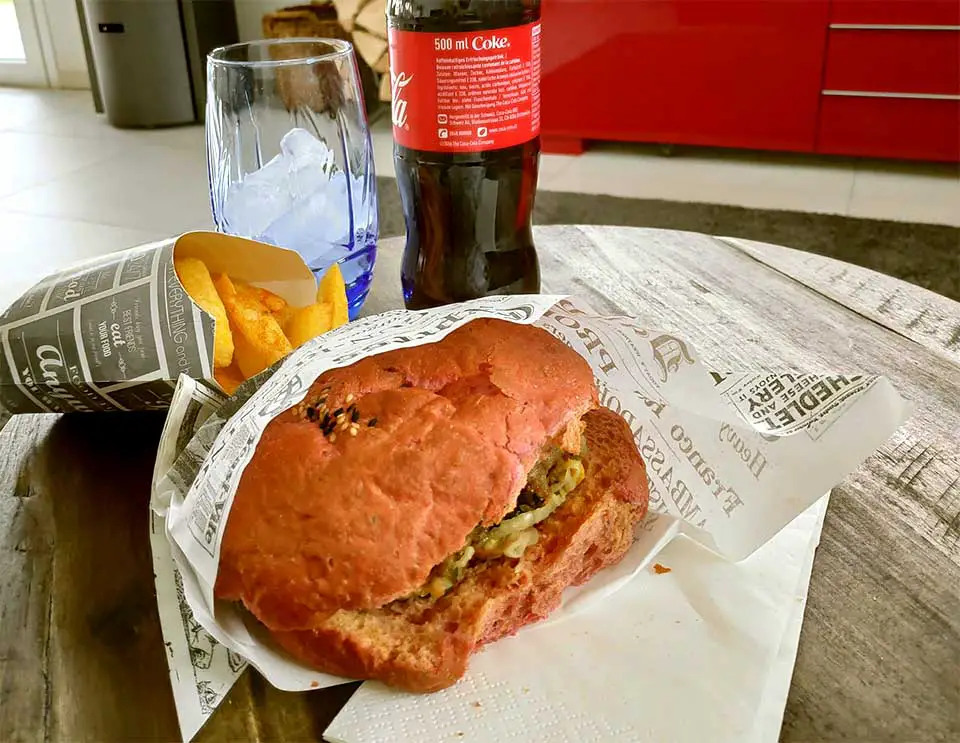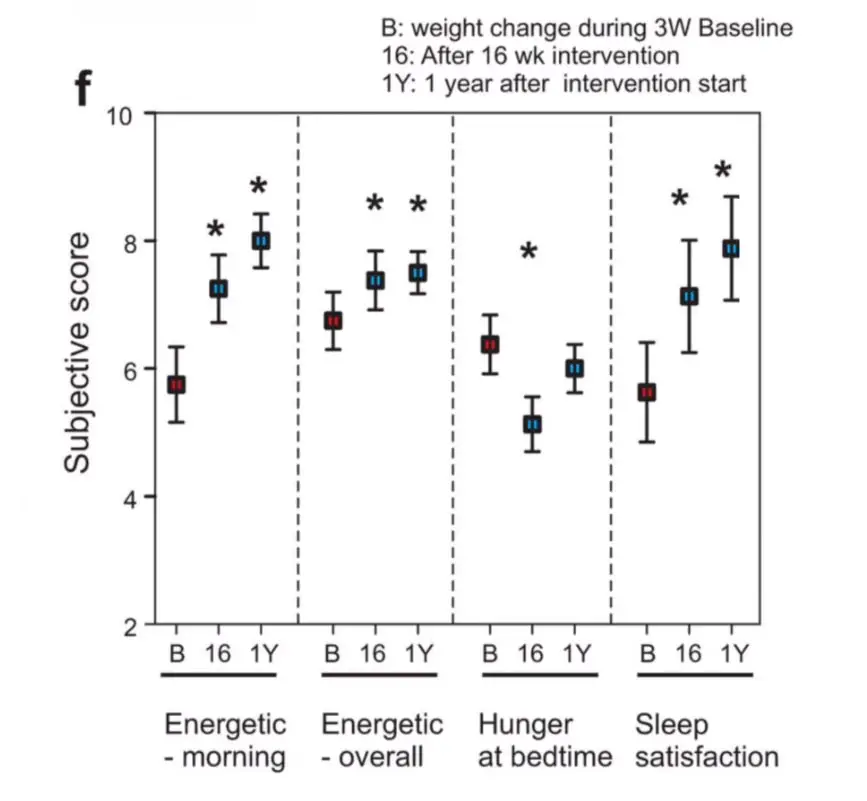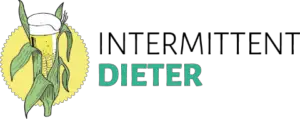Fasting or keto will have an effect on energy levels and sleep quality. If you’ve ever done one or the other, you know that it’s a very real thing. A whole day, or several days, doing a fast or keto can leave you feeling sleepy and even disturb your nights at first, why is that?
There are a few reasons for low energy levels or troubled sleep when fasting: your body is not able to run on fat for fuel immediately, electrolytes deficiencies (sodium, potassium), and food habits disturbing your circadian rhythms. In the long term though, these side effects will disappear and you will end up benefiting from fasting and keto.
So, low energy levels, drowsiness, disturbed sleep will occur on fasting and, more generally, when eating restricting carb intake. Let’s take a look at why and see how you can prevent this from happening and help your body get through these side-effects.
Side-effects of fasting and keto on energy levels
During the fast
If you’re fasting or even doing keto, you’ll most likely experience what is called keto flu. The symptoms of keto flu could include:
- headache
- body ache
- cravings
- brain fog
- and of course, fatigue
I won’t dive too deep into all the symptoms, let’s focus on the lack of energy and general fatigue you’ll get.
Keto flu is a byproduct of getting your body into ketosis. Whether by doing a very low carb diet or when fasting, you will be telling your body to run on the free fatty acids in your body and on your fat stores for fuel.
You have to understand what that means. Your body is quite an impressive machinery, for years now, it has been relying on sugar, glucose, as its main source of energy to function.
Now, you’re essentially telling it to stop doing this and to rely on your fat stores instead. Your entire cellular machinery is now turning to fat-burning instead of glucose ingestion. That’s pretty heavy stuff and this can be considered a shock to the body.
On a fast or keto diet, your body will start by burning through the stored sugar in your glycogen stores in the liver and the muscles. Leading to hypoglycemia, low blood sugar (I made a whole article on hypoglycemia and fasting, check it out).
When energy stores are depleted, your body will have to rely solely on fat burning for energy. Without having learned to do that yet, meaning you’ll start by having an energy deficit. Leading to fatigue.
During this whole process of turning to fat for energy, your body will still be needing certain vitamins, nutrients, minerals, and electrolytes to work properly. If you’re fasting, you’ll be depleted of those quicker than on a keto diet, where you could only experience some deficiency.
If you remove glucose and sugar from the diet, your body won’t retain as much water as it usually does. When you eat carbs, this will spike up insulin levels. While insulin lets the cells know there is excess energy, it will also tell the kidneys to hold onto sodium and water.
Insulin helps regulate sodium balance in the body, without insulin, kidneys will default to their normal behavior: dumping water and releasing the minerals. So, most of the extra fluids will be flushed out as well as the minerals and electrolytes when you’re in ketosis. It will lead to depletion and increase the symptoms (headache, body ache, and fatigue).
When breaking your fast
It is quite common to feel sleepy after breaking a fast. Simply because you’ll be digesting your food. This is known as postprandial fatigue. The blood circulating in your body and brain will be diverted to the digestive system and it takes energy.

If you break your fast with carbs, this will logically raise blood sugar. It will also raise insulin levels and afterward, you’ll experience a crash in blood sugar. But what will increase this feeling is that, when you’re fasting, you’re very insulin sensitive. So, in this state, when you eat your body will go into hyperdrive to try and react to what you ate.
You might think you won’t have this effect if you’re on a keto diet. After all, you’re not eating carbs, so you won’t have an insulin spike. Well, even if you’re not eating carbs, proteins and fat induce an insulin reaction.
Of course, the effects might not make you feel so sleepy on a low carb diet, but it will account for some of it.
When going to bed
Fasting, in the long term, improves sleep quality. Maybe if you just started, you might think I’m biased and full of it, I’ll explain why later in this article.
In the short-term though, fasting and keto can make you sleepy and then disturb your sleep for various reasons.
As I said earlier, when you break a fast or even on a keto diet, some insulin will be released upon eating. If you do one meal a day diet or in general break a prolonged fast in the evening, the spike of insulin will make you sleepy at first.
But another effect of insulin is that it blunts a neurotransmitter called orexin. Orexin is a neuropeptide that promotes wakefulness. Meaning that you might feel ready to sleep, but this side effect can prevent you from actually falling asleep. When experiencing insomnia, you’re body actually has high levels of orexin.
This study talks about a medication called suvorexant, to treat insomnia. Most of the insomnia treatments aim to put you to sleep, leading to associated effects such as day-time somnolence or confusion. Suvorexant is actually an orexin receptor antagonist, meaning it decreases orexin levels.
I’m not advocating a drug to combat insomnia, but just pointing out the effect of orexin receptor and how it is linked to insulin and fasting.
One of the other short-term effects of fasting disturbing your sleep comes from your circadian rhythm. In short, your body clock. You have a master clock in your brain, called the suprachiasmatic nucleus. It’s hyper sensible to blue lights. Meaning day/night cycles are hugely important for your brain to be awake or asleep.

But you also have other body clocks:
- in your liver
- in your kidneys
- in your pancreas
- in your heart
Food and when you eat is the preliminary controller of these clocks. From the first thing you eat in the morning to the last bite of food you get in the evening, this tells your body how to set your circadian rhythm.
That’s why some people have been experiencing with fasting to prevent jet lag since sunrise and sunset cannot be relied on anymore on long flights, the way you eat could actually decrease the effects of jet lag. I did a whole article on circadian rhythm and jet lag, check it out!
So, when you’re restricting your eating window on intermittent fasting, you’re actually altering your circadian rhythm. At first, your body will fight it, since your body clock is used to certain eating habits. But after just a few weeks, this side effect will disappear.
Another way in which the way you eat can affect your sleep is through an amino acid called tryptophan. Tryptophan is a very important amino acid which when converting helps the production of serotonin. Serotonin is a neurotransmitter that helps you feel calm and relay. It’s also a precursor to melatonin, which helps you fall asleep.
Carbohydrates promote tryptophan production. When you’re fasting or on a keto diet, the lack of carb could lead to a tryptophan deficiency. Leading to less serotonin. Leading to less melatonin. Making it harder for you to fall asleep.
How to prevent these side-effects
During the fast
If your body is having a hard time converting to fat burning for fuel, you’ll experience keto flu. And when your energy stores are depleted, when you get into hypoglycemia, you’ll feel fatigued and get tired.
These are the side effects you will have to cope with. But it’ll get easier. If your body gets used to ketosis through intermittent fasting or low-carb diets, the keto flu won’t get as bad next time.
This energy depletion cannot exactly be fought, but what I would advise you to do nevertheless is to exercise. Or simply break your day with small, 5 minutes, moderately intense exercises. You could do pull-ups, push-ups, mountain climbers or simply take a walk for five minutes. I used to go to the bathroom to ten push-ups every 90 minutes when I was working in an office. Not very glamorous, but a great way to combat afternoon slumps.
This study talks about the effect of standing up, walking and exercising during the day on overall energy. The patients were divided into three groups :
- The first group spent 6 hours sitting down
- The second group did a small workout prior to sitting down for 6 hours
- The third group could get up 5 minutes every hour to do some kind of moderate exercise, while still sitting down for 6 hours
The second and third groups experienced an increase in overall energy, but only the third group noted that this 5-minute break decreased their appetite, increased their mood and increased their energy, even more, each time.
The other effect of keto flu is electrolytes, minerals, and vitamins depletion. First, make sure you drink enough water. If you’re fasting or doing keto regularly, that should be a given. Then you could take supplements:
- mix salt (ideally pink Himalayan salt) with your water
- vitamin B
- magnesium
- potassium
Take a look at my recommended supplements on fasting and keto. They should all help with fatigue and an overall lack of energy.
When breaking a fast
If you’re doing keto or just in general, you could start by breaking a fast with lean proteins. Like chicken breast, lean ground beef. You could also add a little bit of fiber to your meal through flax or chia seeds. Those are extremely fiber-rich.
Both of these can help when breaking a fast. Since you’ll be extra sensitive to insulin, they will trigger a small insulin reaction, which will help desensitize your body from insulin. And adding in the fiber will help to reduce the rise in blood sugar.
Another thing you could add to your meal if you’re eating carbs is chromium, also known as MSG for MonoSodium Glutamate. There are many articles on MSG, debating whether this salty additive is good or harmful to your body. You can do the researches on it, but it could actually help with post-breaking fast fatigue.
Inside the middle of a cell, there is a transporter called glute 4. When cells see glucose or insulin, this glute 4 transmitter will move outside of the cell to help the carb come in. But not every cell activates this glute 4 transporters. MSG will help glute 4 activation, through various genetic pathways.
This means when you get carbs, glucose will go straight from the bloodstream to utilization mode. So, you’ll have less blood glucose and you won’t experience as much of a crash when it’ll be dropping.
My last, practical, advice on being tired after breaking a fast, would be to break your fast in the morning. I know, that can actually prove more difficult to handle, since eating in the morning could leave you more hungry for the rest of the day. But like everything: it’s just a habit to get.
You might say: yeah, but I’ll feel tired in the morning, that’s not great either. It will be easier to handle:
- your circadian rhythm doesn’t equate morning with sleep, so it’ll help you keep energized through the morning
- you will be able to drink coffee, which will be a great source of energy to get you through the initial fatigue. On the contrary, I would really not advise drinking coffee after dinner, since it could further impact your sleep quality
When going to bed
Contrary to my previous advice, if you tend to have trouble sleeping after a fast, I would advise you to break the fast with carbs. It will not help with energy levels in the evening, but it’ll promote tryptophan production which can then help you sleep later.
I would still advise against a carb-loading since this could disturb your sleep afterward. And you shouldn’t eat too close to going to bed. As I said before, insulin reaction promotes orexin, a neurotransmitter linked to wakefulness.
This is quite logical when feeding, you shouldn’t combat sleep. If you take a look at this from an evolutionary perspective, our ancestor would eat during the day, so eating would logically impact wakefulness. Then only when the digestive process starts will you get sleepy.
If you want to get your cake and eat it too, you can always take tryptophan supplements in the evening, which will help melatonin production and help you sleep (and hopefully stay asleep).
How fasting can improve sleep in the long term
As I said before, intermittent fasting might make sleeping difficult at first, since your body has to adapt to a whole new circadian rhythm. Food and when you eat are two really important factors to your body’s internal clock, restricting your eating window will have an impact.
But once your body adapted to this new rhythm, this will actually come with great benefits.
A study conducted in 2015 designed a smartphone app on eating habits. They had to input how much of a time frame people were consuming anything other than water. The idea was to find out people’s usual eating window’s length.
Most people estimated their eating window was around 12 hours, but they found out that it was in fact 3 hours more. From the first sugary cup of coffee in the morning to the last bite of food in the evening, their eating window lasted for 15 hours.
The study then asked the people with an eating window that was longer than 14 hours, to reduce it to 11 hours. The important was not what they ate, but when they ate. What happened is that these people felt more energetic, lost more weight and slept better.

Restricting your eating window might also improve circadian oscillations. You get a more pronounced circadian rhythm in parts of your body when you’re restricting your food intake to a certain time frame, like in intermittent fasting.
Your body simply prefers to metabolize food at certain times of the day. As I said before, hundred of years ago, being diurnal animals, we never ate in the evening or in the night, always during the day. So, hormones related to food metabolism work against hormones promoting sleep.
This study shows that increasing insulin downregulates levels of melatonin and vice versa. Melatonin, the sleep-promoting hormone, work is made easier when insulin levels are low in the body. Which is what promotes intermittent fasting.
It would seem that the length of the fast seems to parallel the length of sleep. The longer the fasting period, the lesser the insulin, the better the production of melatonin.
Conclusion
I’ve experienced most of these effects first-hand. Let me say that it’s never a funny feeling and all the scientifical mambo jumbo won’t be of great help once you fill like fainting.
But what I found was quite funny, is that even before I educated myself on the matter, I already did most of these things. When I felt drowsy in the afternoon, I did push-ups and walked around, when I felt nauseous on a prolonged fast I drank salted water, when I had problems falling asleep, I stopped eating earlier in the evening, etc.
It all came quite naturally, simply because I have a brain and your body is perfectly able to communicate most of this through feelings and cravings.
Understanding all this though can still be of great help when going through a rough time with these fasting and keto diets.
Sure, that’s not always an easy or comfortable thing to do, but just take a look at all the benefits of fasting or keto! All this feels dismal in comparison to what you actually get from those diets.

